How to Use Essential Oils Around Your Horses
Imagine harnessing the power of nature to improve the well-being of your horses. Envision using the essence of plants, in the form of essential oils, to address common equine issues like stress, skin sensitivity, and muscle soreness. Intriguing, isn’t it? This post will guide you on “how to use essential oils around your horses” safely and effectively.
Key Pointers
-
Understanding Essential Oils for Horses involves familiarizing oneself with the properties, quality, and concentration of the oils.
-
Quality and concentration are key when using essential oils around horses to avoid adverse reactions.
-
Consulting a veterinarian is necessary for safe use, while observing horse’s reactions can help identify any potential issues.
Understanding Essential Oils for Horses
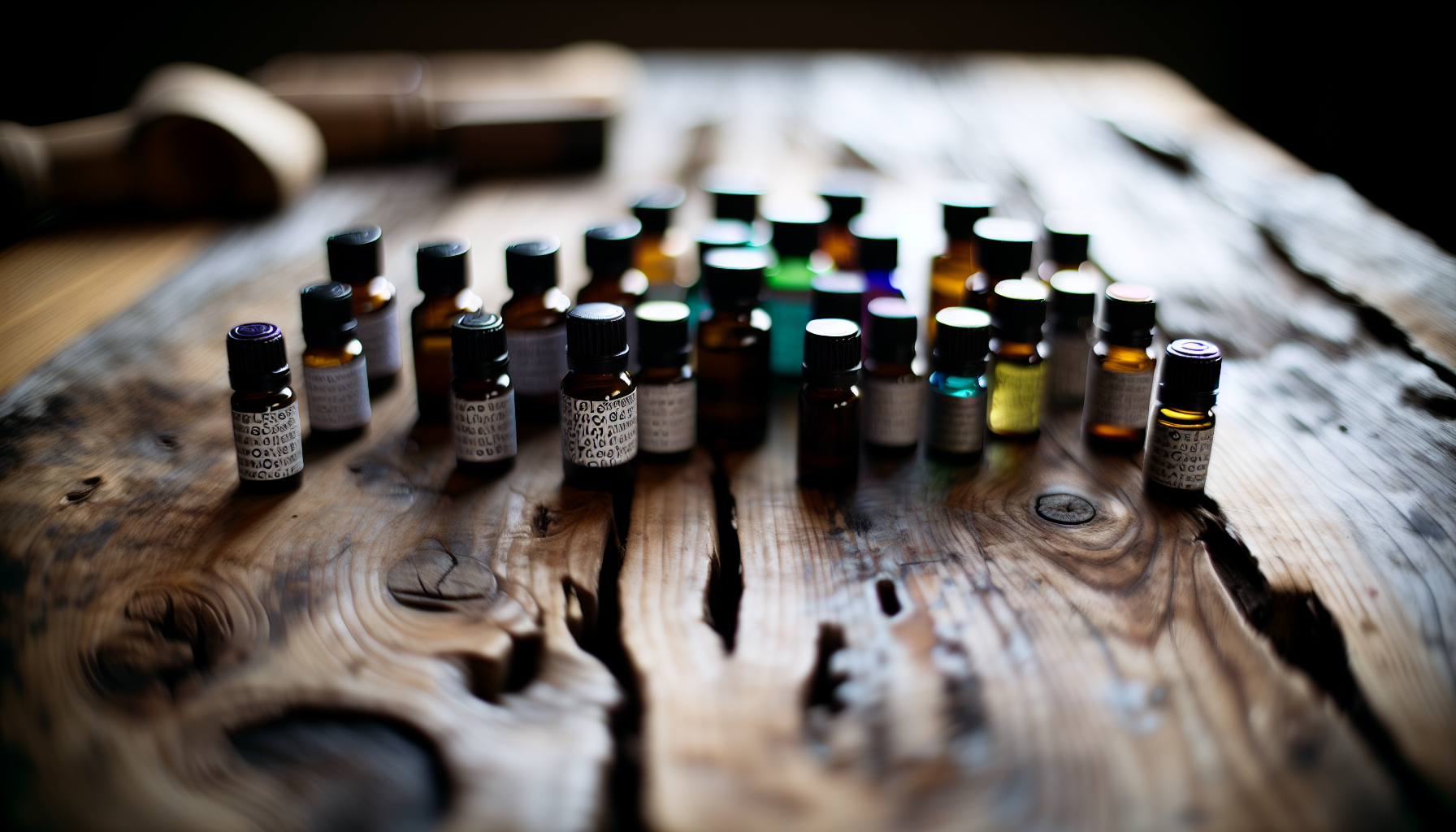
Essential oils are potent plant extracts used in alternative medicine and aromatherapy. From lavender to geranium and peppermint to frankincense, many essential oils have been recognized for their potential health benefits in horses. However, before initiating the use of these true essential oils, understanding their properties, quality, and concentration is needed.
Essential oils, like lavender, tea tree, and geranium, are said to have various benefits. For instance, lavender is known to help with anxiety and provide pain relief, while tea tree oil has antimicrobial properties, making it useful for treating wounds and insect bites. However, remember to always dilute the best essential oils to prevent reactions from horses that may be sensitive to certain oils. To use essential oils safely, always follow the recommended guidelines and consult with a professional if needed.
Despite the numerous suggested benefits of essential oils, scant data exists on their effectiveness for horses. Most of the assertions about their health advantages are backed by research conducted in other species. Also keep in mind that while aromatherapy can provide health benefits for horses, it is a holistic approach to health and does not replace modern medical methods.
The Power of Plant Extracts
Plant extracts are the heart and soul of essential oils. They are the powerhouses that provide these oils with their unique properties. Some of the most potent plant extracts used in essential oils for horses include:
-
Lavender
-
Thyme
-
Oregano
-
Bergamot
-
Basil
-
Chamomile
-
Cedarwood
-
Mandarin
-
Eucalyptus
These extracts boast various benefits, including calming and soothing properties and antimicrobial properties.
Numerous studies have indicated that essential oils possess the following properties, which can be beneficial for equine health:
-
Antimicrobial
-
Antioxidant
-
Anti-inflammatory
-
Detoxification support
-
Microbiota improvement
-
Hormone balance
These properties make essential oils advantageous for horses, as they can even positively impact a horse sniff.
Quality and Concentration Matter
The strength and effectiveness of an essential oil hinge on its quality and concentration. As such, these two factors should be taken into account when using essential oils around horses. For example, Young Living Essential Oils, renowned for their superior quality, are backed by the Seed to Seal® guarantee.
The concentration of an essential oil is the measure of the amount of oil present in a product or mixture. It is important to consider the concentration when using essential oils around horses, as it can determine the potency and efficacy of the oil. A higher concentration may yield stronger effects, while a lower concentration may be gentler. Therefore, gaining knowledge about the concentration of an essential oil is necessary to ensure horse safety and avert possible adverse reactions.
Safe Application Methods for Horses

When using essential oils with horses, the approach carries as much weight as the oil itself. Essential oils can be employed for horses through two primary methods – aromatherapy and topical applications. Each method has its own advantages and uses.
Aromatherapy involves using essential oils to provide a range of benefits, including calming, reducing anxiety, relieving sore muscles, and improving mood. On the other hand, topical applications involve using essential oils directly on the horse’s skin to address specific issues. For instance, a massage blend with essential oils can aid in relaxation, reduce stiffness, and diminish swelling in horses. Furthermore, essential oils can intensify the effects of sports massage and aid in a more significant release of tension.
While both methods have their merits, the most efficient method for utilizing strong essential oils with horses is through olfactory sensory input, as most topical applications are not cost-effective. However, it’s also worth noting that certain oils that produce heating or tingling sensations may have the greatest effect when applied topically.
Aromatherapy for Equine Well-Being
Aromatherapy for equine well-being is a holistic approach that uses the power of scent to improve the horse’s overall health. Essential oils such as:
-
lavender
-
tea tree
-
basil
-
bergamot
-
chamomile
-
devil’s claw
-
eucalyptus
-
frankincense
-
peppermint
-
melrose
are the most beneficial for equine aromatherapy. These oils can provide calming effects, reduce anxiety, relieve sore muscles, and improve mood.
The effects of aromatherapy on horses can be quite profound. For instance, lavender is known for its calming effect on the nervous system and can help reduce stress levels in horses. On top of that, aromatherapy for horses offers numerous advantages, such as:
-
deterring insects
-
alleviating stress
-
strengthening immunity
-
inducing relaxation
However, practicing safe application methods and proper dilution is important when using essential oils with horses.
Massage and Carrier Oils
Massage with carrier oils is another effective way to utilize essential oils for your horse. Some common carrier oils include:
-
Avocado oil
-
Coconut oil
-
Jojoba oil
-
Sweet almond oil
-
Sunflower oil
-
Olive oil
These carrier oils are used to dilute essential oils before they are applied to the horse’s skin. This is important as it makes the essential oils safe for topical application and enhances their absorption into the skin.
The process of massaging the horse with the oil blend increases circulation, releases endorphins, and promotes relaxation. The carrier oil, such as coconut oil, is mixed with a few drops of essential oil and applied to the horse’s muscles. The massage is done by gently stroking the muscles with an open palm, gradually increasing pressure. This technique helps to improve blood flow, release feel-good hormones, and create a calming effect on the horse.
Topical Treatments
Topical treatments using essential oils provide a more targeted approach to addressing specific concerns such as skin sensitivity and insect bites. Essential oils recommended for topical treatment of equine skin conditions include:
-
Lavender
-
Tea tree oil
-
Peppermint
-
Geranium
-
Frankincense
-
Yarrow
The topical application of essential oils involves diluting the oil with water and applying it directly to the affected area using a spray bottle or a clean cloth. However, one should be aware that essential oils can lead to the following concerns:
-
Photosensitization
-
Dermatitis
-
Toxicity concerns
-
Respiratory issues
-
Skin irritation
Hence, care should be taken to properly dilute essential oils before applying them to horses.
Essential Oils for Common Equine Issues
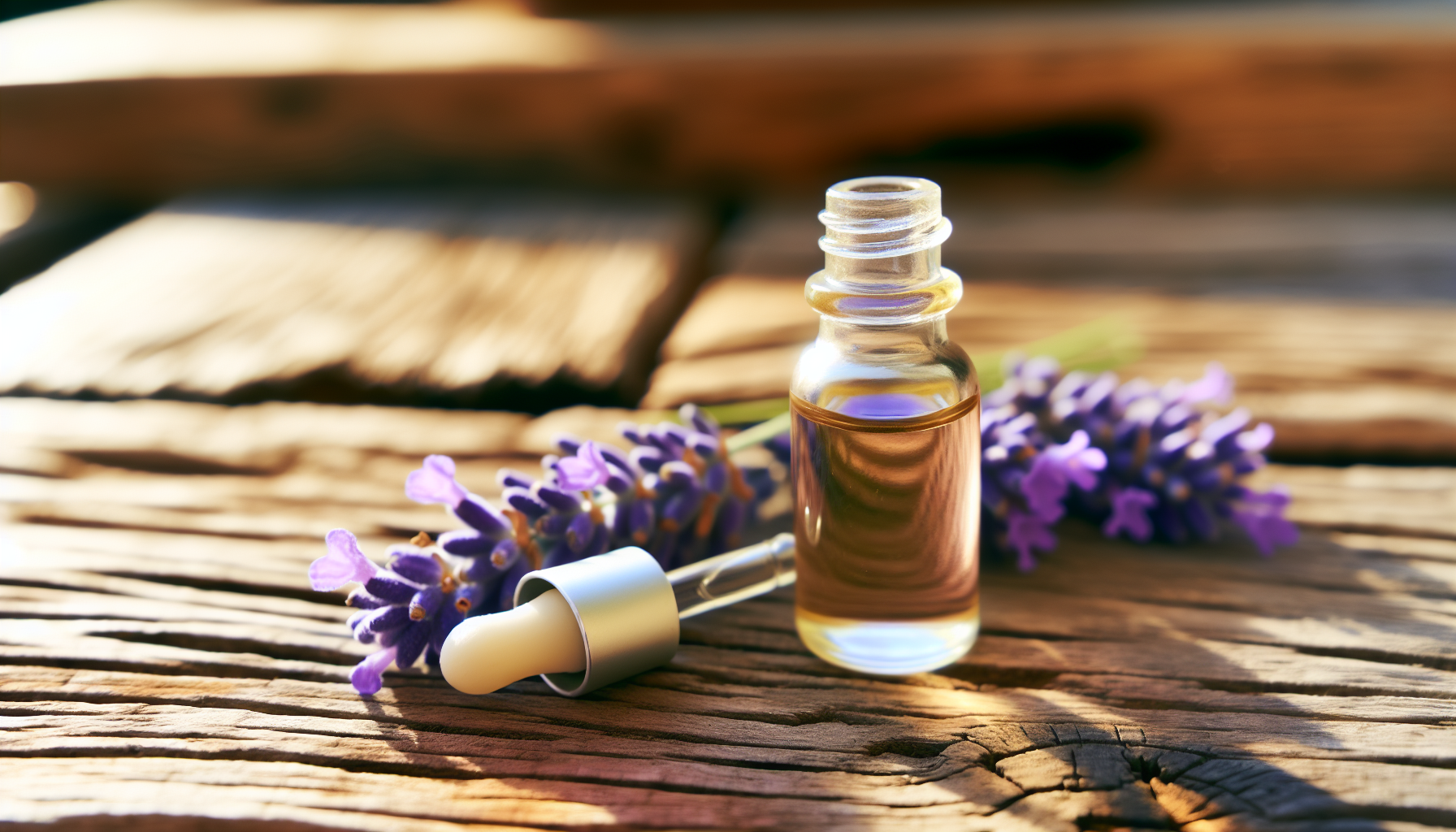
Essential oils can be a game-changer when it comes to addressing common equine issues. From stress to skin sensitivity and muscle soreness, these plant extracts can provide natural solutions to a variety of horse health concerns. For instance, lavender oil can be used to promote relaxation and reduce inflammation, while tea tree oil is beneficial in alleviating inflammation and itchiness on the skin of horses.
Understanding the potential benefits and uses of different essential oils can help horse owners harness their power effectively. For instance, chamomile essential oil is known to provide reliable relaxation and alleviate muscle cramps, while geranium essential oil offers a range of benefits including promoting relaxation, providing anti-inflammatory properties, acting as an anti-bacterial, and repelling insects.
However, one must keep in mind that despite the various benefits of essential oils, they do not replace professional veterinary advice and treatment. Always consult with a veterinarian and closely monitor the horse’s reactions when utilizing essential oils.
Lavender Oil for Stress Relief
Lavender essential oil is a standout among essential oils for its benefits in stress relief. Known for its calming properties, lavender oil can help combat anxiety and shyness while providing a calming effect that can help reduce stress levels. In fact, studies have indicated that lavender oil can have a calming effect on the nervous system of horses, reducing stress responses and lowering heart rate. Some benefits of lavender oil include:
-
Stress relief
-
Anxiety reduction
-
Calming effect
-
Lowering heart rate
The methods of applying lavender oil for stress relief include inhalation through a diffuser, topical application with a carrier oil, and allowing the horse to sniff a few drops of lavender oil on the hand. However, the need for further research is indicated as the recommended dose of lavender oil for horse stress relief is still undetermined.
Tea Tree Oil for Skin Sensitivity and Insect Bites
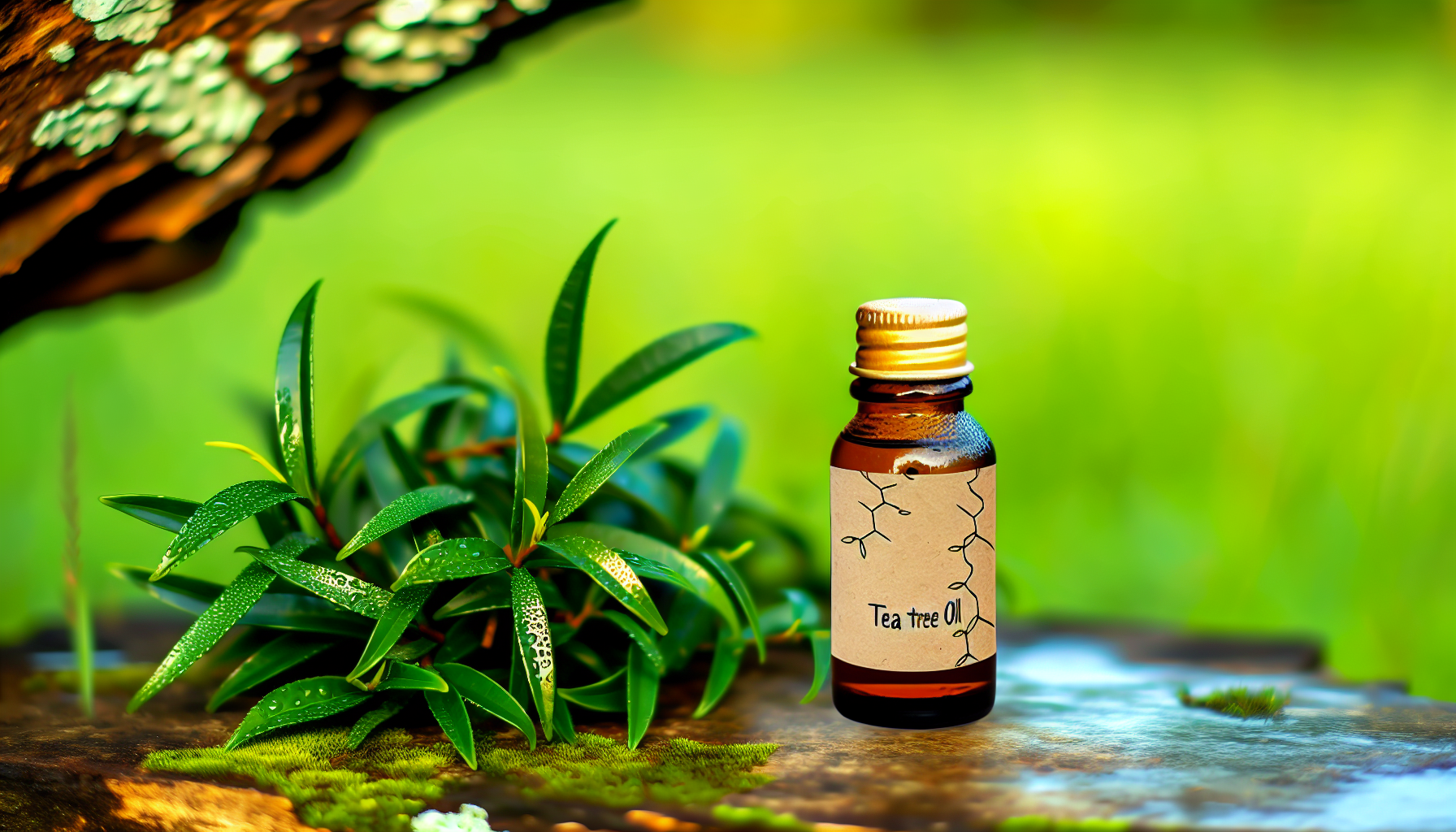
Tea tree oil, with its antimicrobial properties, is a powerful tool in managing skin sensitivity and insect bites in horses. This remedy can be used to treat:
-
Skin abrasions
-
Cuts
-
Infections
-
Insect bites
-
Other illnesses
In addition, it helps to reduce discomfort associated with these conditions. However, keep in mind that tea tree oil is highly concentrated and should invariably be diluted.
In the event of skin sensitivity or insect bites, a diluted solution of tea tree oil can be applied directly to the affected areas using a spray bottle or a clean cloth. However, care should be taken to ensure that the horse does not groom it off themselves and inadvertently consume it, as tea tree oil is hazardous if ingested.
Eucalyptus and Peppermint Oils for Muscle Soreness
For horses experiencing muscle soreness, eucalyptus and peppermint oils can provide natural relief. Eucalyptus oil has demonstrated analgesic and anti-inflammatory properties, which can provide relief from muscle soreness in horses. It has been known to temporarily reduce soreness, stiffness, and inflammation of muscles and achy joints.
Moreover, research has indicated that peppermint can be effective in decreasing muscle pain and increasing muscle relaxation. A massage blend containing eucalyptus and peppermint oils can be applied to the affected area and massaged gently to relieve muscle soreness. However, for specific dosing instructions tailored to your horse’s requirements, consulting with a veterinarian or an equine aromatherapist is recommended.
Precautions and Considerations
While essential oils can offer various benefits for horses, it’s important to be aware of potential risks and side effects. These may include:
-
toxicity concerns
-
respiratory issues
-
skin irritation
-
weakness
-
lethargy
Therefore, before introducing essential oils to horses, consultation with a veterinarian and close monitoring of the horse’s reactions are necessary.
Recognizing the potential risks and side effects is vital for the safe and successful use of essential oils on horses. Some essential oils may be too powerful for horses and can result in negative effects. Therefore, these oils should be used with caution and only under the guidance of a veterinarian.
Consulting with a Veterinarian
To ensure the safety and effectiveness of using essential oils on horses, consultation with a veterinarian beforehand is necessary. Using essential oils without professional guidance may present several risks, including potential toxicity concerns if the oils are ingested or improperly administered, and potential liver and kidney toxicity.
Veterinarians can provide guidance on the safe and appropriate use of essential oils for horses, perform patch testing, and take into account elements such as the horse’s health condition, behavior, and specific requirements before suggesting the use of essential oils. Therefore, always consult with a veterinarian before introducing essential oils to your horse’s care regimen.
Observing Your Horse’s Reactions
Monitoring your horse’s reactions to essential oils is key to detecting any adverse effects or allergies. Signs of allergic reactions to essential oils in horses may include:
-
Changes in the skin, eyes, or nostrils
-
Itching
-
Redness
-
Swelling
-
Hives
In the case of an adverse reaction or allergy, it is recommended to:
-
Remove the horse from the source of the essential oil immediately
-
Rinse the affected area with water to remove any residual oil
-
Monitor the horse closely for any signs of distress or worsening symptoms
-
Contact a veterinarian for further guidance and treatment options.
DIY Essential Oil Recipes for Horses
For those who prefer a hands-on approach, DIY essential oil recipes can be a great way of incorporating these natural remedies into your horse’s care regimen. From homemade fly sprays to relaxing equine massage blends, these recipes can harness the power of essential oils for your horse’s benefit.
However, when concocting your own essential oil blends for horses, using safe and appropriate proportions of essential oils is imperative. A general guideline is to use 10 drops of essential oil to 1 ounce of a carrier oil. However, it’s always recommended to conduct further research and consult a veterinarian before using essential oils on horses.
Remember, DIY essential oil recipes should never replace professional veterinary advice and treatment. They are meant to complement, not substitute, traditional veterinary care.
Always keep a close watch on your horse’s reactions when new essential oils are introduced to their regimen, and seek advice from a veterinarian if you notice any adverse reactions.
Homemade Fly Spray
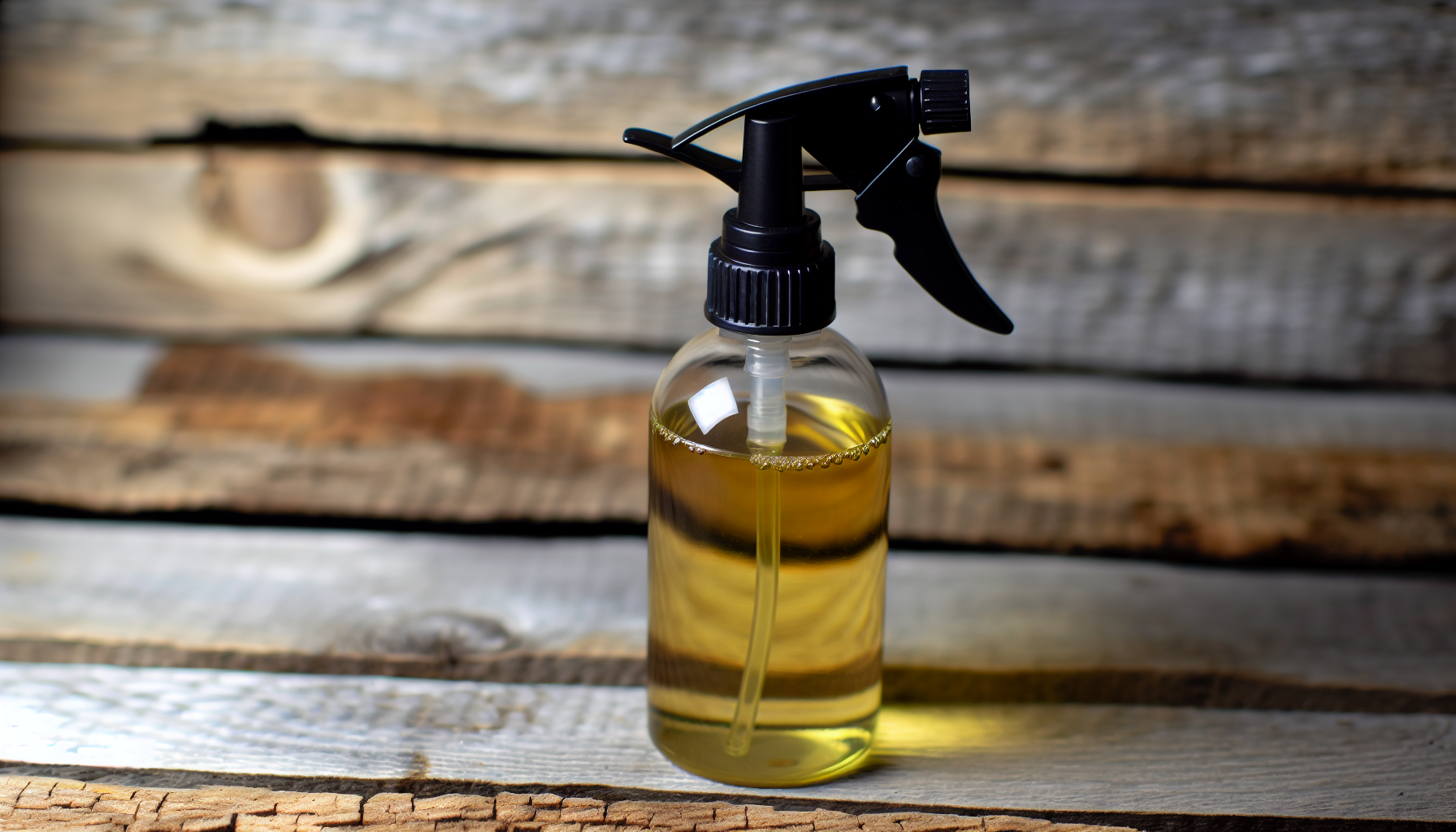
A homemade fly spray can be a natural and effective way to repel insects and ensure your horse’s comfort. Essential oils such as eucalyptus, peppermint, and tea tree are the most effective for a homemade fly spray.
A popular recipe for homemade fly spray includes:
-
2 cups of raw apple cider vinegar
-
1 tablespoon of mineral oil
-
1/2 tablespoon of liquid dish soap
-
30-40 drops of bug-repelling essential oils such as citronella, lemon eucalyptus, lavender, cedar, or peppermint.
While homemade fly sprays may not necessarily kill flies upon contact, they can assist in keeping them away from the horse.
Relaxing Equine Massage Blend
For a relaxing equine massage blend, try combining the following essential oils:
-
10 drops of lavender oil
-
10 drops of tea tree oil
-
10 drops of melrose
-
10 drops of frankincense oil
This blend can enhance the effects of sports massage and promote relaxation in horses. It can be mixed with a carrier oil, such as coconut oil, and applied to the horse’s muscles to improve blood flow, release feel-good hormones, and create a calming effect on the horse.
Summary
From stress relief to skin sensitivity and muscle soreness, essential oils can provide a natural and holistic way to address common equine issues. However, it’s crucial to understand that while essential oils can offer various benefits, they are not a substitute for professional veterinary advice and treatment. Always consult with a veterinarian before using these oils and closely monitor your horse’s reactions to ensure their safety and well-being. Remember, a happy horse is a healthy horse!
Frequently Asked Questions
How do you apply essential oils to a horse?
To apply essential oils to a horse, dilute it first and introduce it gradually, as horses have a keen sense of smell. Check for allergic reactions by applying a small amount to the skin of the horse before using it more extensively.
How do you apply essential oils to pets?
Safely diffuse essential oils into the air for your pet to inhale, making sure to give them an escape route if they don’t enjoy the smell.
How do you use peppermint oil on horses?
Applying 4-6 drops of peppermint oil along the spine from tail to head, over the poll or chest, or directly onto an area of concern such as joints is a great way to use peppermint oil on horses and cattle. It can also be given orally 2 drops in feed twice a day for digestive support.
What are the benefits of using essential oils with horses?
Essential oils can help horses in various ways, from reducing stress and treating skin sensitivity, to relieving muscle soreness. Using essential oils with horses can thus provide a range of beneficial effects.
What precautions should I take when using essential oils with my horse?
Consult your vet before using essential oils, and keep an eye out for any allergies or adverse effects in your horse.


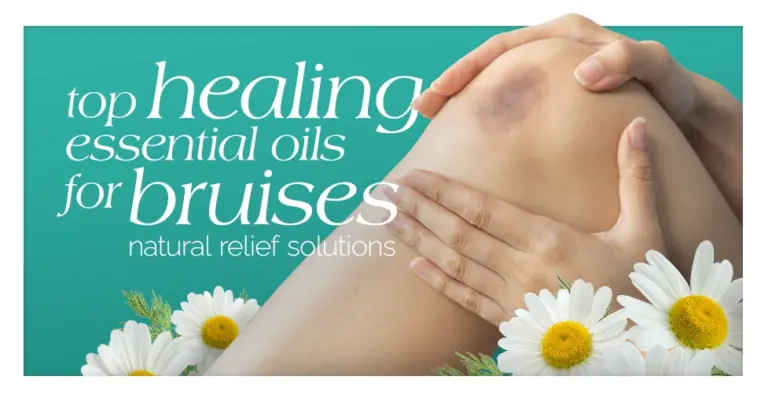
Any essential oils for strombush..? Thank you..
This is incredible! I have horses also. I never knew you could use these. The only one i knew of was lavender oil. Thank you so muchhh!!
Lavender essential oil is so helpful with lice or any bugs for that matter.
Genius. I have been around horses my whole life and never thought about using essential oils for them!
Thank you for going over how to introduce new oils! I’m always so afraid of the possible reaction but definitely going to give it a try now!
That is so cool that they can use these.
I don’t have any horses nor do I take care of any. However, I did find this blog post to be extremely informative. And if I ever end up taking care of horses or having any in the future, I will definitely come back to this blog post since you were so thorough in your explanation of why using essential oils can be so helpful for horses.
Love the idea!
I never knew this. I am learning more about essential oils everyday. I am amazed at how much they can help cats, dogs and now horses! I like that you let us know what some of the essential oils can be used for! Thanks so much!
I will pass this article on to my sister who has horses.
Very interesting!
That is really cool to know that they are being used for house, I know they are used for the regular companion animals (dog and cat).
Amazing !!! My Cousin Owns A Horse She Seems 2 Have A lot of Anxiety Valuable info tsvm !!!
We use Lavendar Oil; seems to have a calming effect on our Mare.
That’s a lot of useful info!
Very interesting read. Didn’t know it had so many uses
This was a very interesting article.
Thank you for the information, it was very informative.
It is great to see articles on benefits or EO’s beyond just humans.
Very interesting!
That’s really neat that you can use these essential oils for horses.
Very informative article. So many great uses for essential oils.
This article is so interesting. I learned alot things I did not know. Horse are very gorgeous animals!
I would not think Frankincense can clam down a horse?
I love essential oils. Great info. Thanks for sharing
Thank you great information. I love horses and I’m not surprised they can benefit from essential oils.
I would never have thought to use essential oil with horses so this article is very informative, thank you
This article had a lot of interesting and helpful information. Thanks.
Very interesting article. I will be passing it on to my cousin who has horses.
The graphics are so cool! I would love to see a post about using essential oils around cats!
Never knew! Will try lavender & frankincense for their calming benefits. Thanks for the information. Worth reading.
Hold your horses, I bringing the aroma therapy as soon as it gets here,
Great article! Great products! Good to know.
This is an interesting article – I wonder if there are any oils that are harmful to horses.
Interesting! Please write an article on dogs and cats too. Thanks
I did not realize Eucalyptus could be used for soar muscles. Great article!
Thank you so much for this information! There is limited info that I have found trustworthy for use on horses on the Internet.
Sharing this with my sister who has horses! Thanks so much!
Very informative, thank you !
I like it
Horses are intelligent and sensitive animals. Here’s an article that helps us know which oils will work for them.
Very interesting. Please write article about another animal
wow very interesting
I would love to have a horse
I loved your article. I am studying to become a Certified Aromatherapist and this information will come in handy. Thank you for sharing!
This was a great article to read, thanks for the great share.
Good, informative article. I’ve read about essential oil use with dogs but not horses. Makes sense.
Good to know in case I ever need to calm down a jittery horse.